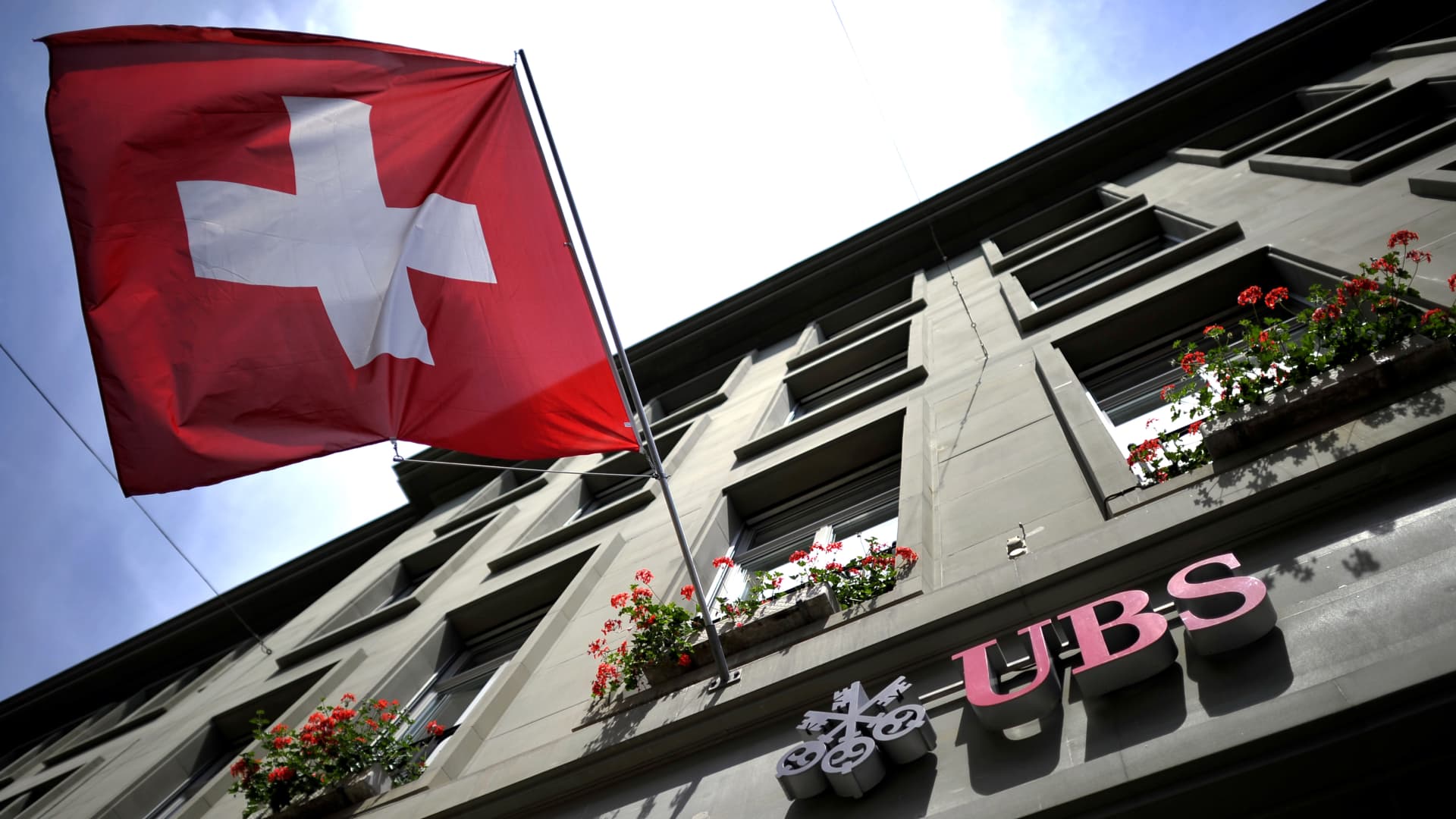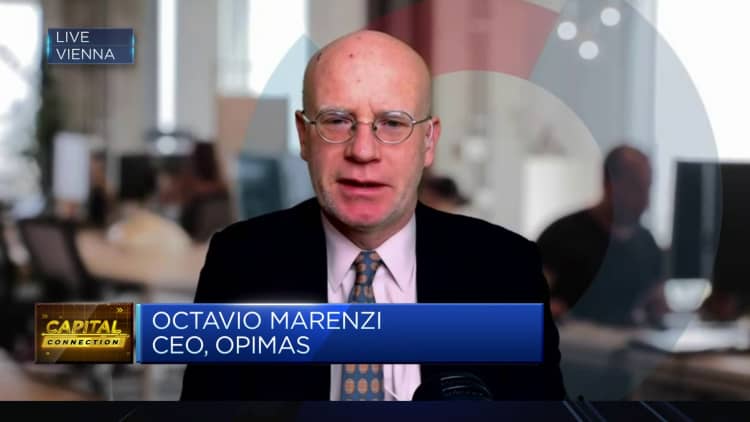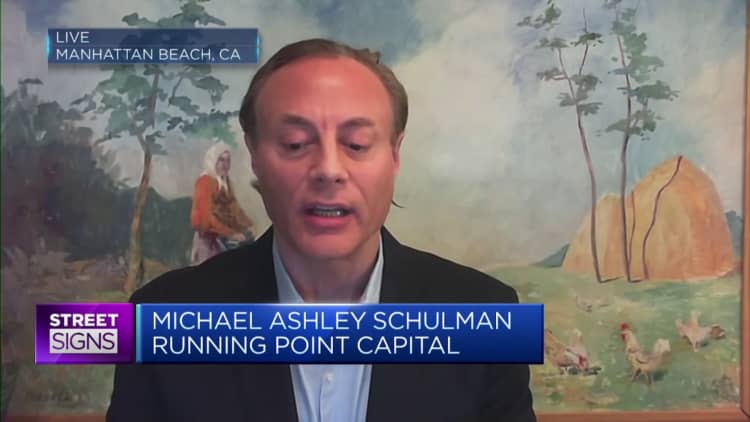
Switzerland, a country heavily dependent on finance for its economy, is on track to see its two biggest and best-known banks merge into just one financial giant.
Fabrice Coffrini | Afp | Getty Images
The demise of banking giant Credit Suisse sent shockwaves through financial markets and appears to have dealt a blow to Switzerland’s reputation for stability, with one executive suggesting investors will now look at the mountainous central European country as “a financial banana republic.”
UBS, Switzerland’s largest bank, agreed on Sunday to buy its embattled domestic rival Credit Suisse for 3 billion Swiss francs ($3.2 billion) as part of a government-backed, cut-price deal.
Swiss authorities and regulators helped to regulate the agreement, which came amid fears of contagion to the global banking system after two smaller U.S. banks collapsed in recent weeks.
The rescue deal means Switzerland, a country heavily dependent on finance for its economy, is on track to see its two biggest and best-known banks merge into just one financial giant.
“Switzerland’s standing as a financial centre is shattered,” Octavio Marenzi, CEO of Opimas, said in a research note. “The country will now be viewed as a financial banana republic.”

“The Credit Suisse debacle will have serious ramifications for other Swiss financial institutions. A country-wide reputation with prudent financial management, sound regulatory oversight, and, frankly, for being somewhat dour and boring regarding investments, has been wiped away,” Marenzi said.
Shares of UBS on Tuesday rose almost 4% by around 10:15 a.m. London time (6:15 a.m. ET), extending gains after closing higher in the previous session.
Credit Suisse, meanwhile, was trading 0.6% lower during morning deals after ending Monday’s session down a whopping 55%.
What about the Swiss franc as a safe haven?
“One feature of this whole banking pressure that we’ve seen over the last week or two is that actually yes we’ve seen major volatility in equity markets, major volatility in fixed income markets, and also commodity markets, but very little volatility in foreign exchange markets,” Bob Parker, senior advisor at International Capital Markets Association, told CNBC’s “Squawk Box Europe” on Tuesday.
Asked about how investors might now think about Switzerland’s reputation for stability, Parker replied, “When I was in Zurich last week, this subject actually was a hot topic.”

He said there had been “some very modest” weakness in the Swiss franc against the euro in recent days, noting that this is the currency pair the Swiss National Bank focuses on.
One euro was seen trading at 0.9961 Swiss francs on Tuesday morning, weakening from 0.9810 when compared to March 14.
“We’ve moved back close to parity on Swiss franc-euro. So, I think to answer your question, yes, to some extent the Swiss franc as a safe haven currency has lost some of its allure. There is no doubt about that,” Parker said.
“Will that be regained? Probably yes, I would argue this is very much sort of a short-term effect,” he added.
— CNBC’s Elliot Smith contributed to this report.
